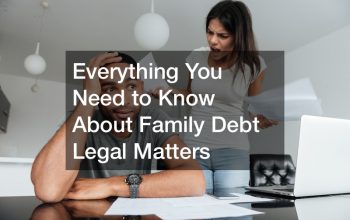
Losing your home is quite possibly one of the most devastating things that can happen to a family or single individual. It is a hard reality to face, but the truth is that it can happen to anyone. You make one late rent payment, and before you know it, you’re out on the street.
Therefore, if you’re concerned about getting evicted from your home, continue reading. Here’s everything you need to know about fighting an eviction notice.
What do I have to do first?
You will have to read up on your rights for each state. You can find these online; however, here’s a brief outline of some of the more common states’ rights as a tenant.
Texas
In Texas, a landlord is able to charge any amount he or she wishes for the rent. There are no limits to increases — as long as the lease is expired and a proper notice is given. As far as evictions go, think about whether or not you can make a good case for keeping your home. A tenant may also have to fight an eviction notice early if they break their lease in some way. For example, if they bring a dog into the complex when it’s been strictly stated in the lease that they are not allowed, they may be evicted.
California
In California, a landlord may be able to evict a resident if they fail to pay their rent on time. This is common tenant law in most states. They may also be evicted if they break their lease and refuse to fix the problem. Additionally, if the resident does something illegal, causes serious damage to the property, or is disturbing the other tenants, they may also be evicted.
New York
In New York, a landlord must go to court if they want to evict their tenant. It is a Class A demeanor for your landlord to evict you by simply changing the locks, taking your furniture out, turning off the water or electricity, or threatening the tenant. If your lock is electronic, they can’t change the code on your electronic keypad, either.
Florida
Lastly, in Florida, a landlord must provide a written notice three days before the eviction. They must also allow you to pay your rent within those three days to prevent the eviction. If the resident is paying a month to month lease, the landlord must provide the notice up to 15 days before the eviction. They legally cannot force a resident off by turning off the heating or water.

However, these are just examples. Many states can vary, so search online and see what applies to your specific state.
What to do after reading the renter’s rights
You have certain rights as a renter. Your landlord must handle things like roof repair. However, if you fail to pay your landlord your rent money on time, you may find yourself in hot water. Eviction may soon turn into a scary but possible outcome. Therefore, after reading through your rights, you should have a better grasp of how long the eviction process takes, and what exactly it entails. Now, try to narrow down your options. Do you wish to stay or pack up and move? If you need more time, call your eviction attorney and ask them to settle a case with your landlord.
Keep in mind, your landlord must follow a long series of steps if they want to legally evict you and your family, so you have enough time to start fighting an eviction notice. This process can take two weeks.
If you are being evicted for not paying rent, and can’t afford to pay it, what do you do?
Upon getting your notice, talk to your landlord candidly. Ask whether or not they can accept an alternative payment arrangement. Perhaps, set up a gradual payment plan or loan program. If your landlord agrees to these terms, make sure to get your compromise down in writing. This serves as definite proof and can hold up in court if you have to go on fighting an eviction notice.
Learn more about the Family Crisis Assistance Program
If you’re fighting an eviction notice, consider learning more about this Department of Health and Human Services run program. It provides relief to low income households and families with young children. A single family is able to apply for a $250 housing stimulus. The family is able to put this money towards a security deposit payment. They can also use this money towards their rent if it can prevent the landlord’s eviction of the home or apartment.

The program can also assist by preventing utility shutoffs such as water and power.
You have up to 30 days to apply for the aid. After this cutoff, you can’t sign back up for another year, so if this is your only way of fighting an eviction notice, take advantage of the program as soon as possible.
Other forms of aid and General Assistance
General assistance is also available for people fighting an eviction notice. This is a welfare program ran by most major cities and towns. If your income is too low to meet basic necessities — like food or rent — your city may be able to help you sort something out. The program may also be able to provide essentials like medicine or shelter. Your town should also be able to help catch you up on a month’s worth of rent. Contact your local town office to apply.
Look into assistance from the salvation army
When fighting an eviction notice, you may also look into emergency housing. These agencies can help put a roof over your head for the time being.
- The Salvation Army
- A homeless shelter
- The Red Cross
Understand how a landlord can evict a tenant
After exploring your housing options, learn more about the process on the landlord’s end. This can also help you fight an eviction notice.
First, your landlord must provide you with a written eviction notice. This notice can also be referred to as a ‘notice to quit.’ After receiving this notice, you may have between 7 and 30 days to move out of the home.
One important thing to note is that verbal eviction notices are not legal. If your landlord only provides you with a spoken eviction notice, this will not stand in court. However, a written eviction is not the same as a court order. You may receive both upon getting evicted. A court order is mandatory when the landlord is legally attempting to evict you.
What are court papers?
Court papers are the next step in the eviction process. If you’re fighting an eviction notice, try to pay the remaining balance of your rent between the time you’re served court papers and receiving the first written notice. You may receive this batch of court papers 30 days after the Notice to Quit document.
Your landlord may show up with a Deputy Sheriff to serve you with the Summons and Complaint.
These are also typically delivered by hand. Make sure to bring these eviction documents with you, so save them as soon as you are served.
Reasons to fight an eviction notice
If you have any reason to fight your eviction notice, it should fall under these next few categories.
Your landlord used unethical methods
If your landlord forced you out either by changing the locks of your apartment or cutting power, you have grounds to fight your eviction.
Your first eviction notice was erroneous
If there were mistakes outlined in your original notice, this may be the landlord’s fault. For example, if there was a misprinted date or the document was delivered to the wrong address, consider finding a lawyer to fight this case!
You had a legal justification for being behind on the rent
If your rental unit was unlivable, this is also another case of neglect and unethical behavior. It can feel frustrating, as this is a legal justification for not paying rent. Additionally, if you already have a written agreement with your landlord that you can pay late rent, they can’t evict you for making your ‘usual’ late payment.

Fighting an eviction notice
If you have exhausted all of these options, but still find yourself in a bind, here’s more information on fighting an eviction notice head on with a legal team. Contact a lawyer! Lawyers can specialize in various types of law —like personal injury law — however, in this case, you will need a lawyer who specializes in eviction law.
You will need to provide the following documents upon meeting with your lawyer to access control of the situation.
- the notice to quit statement
- the initial rental agreement your landlord wrote
- Summons and Complaint statement
- Rent receipts
What will happen at your court hearing?
If you and your landlord do not settle your case outside of a court setting in time, the judge appointed to your case will hold a hearing. Make sure to ask for the entire court hearing to be recorded. This may help you down the line!

Also, know what to expect. Upon arriving, all of the witnesses will be sworn in by the judge. The landlord will be the first person to tell their side of the story in court. Sit and listen patiently and try not to speak out of term during this time. After they present their case, you will get the next few minutes to ask them questions about the case. They may also bring witnesses. After these court segments, it’s your turn to present your side of the eviction story. Tell the appointed judge everything as clearly as you can. List all of the reasons that you shouldn’t be evicted and provide the court with the cold hard facts.
Some common issues you can bring up while presenting your case (only if they happened and apply to you) can include:
- You never got your written eviction notice, or there was an error on it.
- You were given a certain date on your written note, but your landlord forced you out beforehand.
- You paid your rent on time, but your landlord is still trying to evict you.
- You were not able to pay your rent due to critical circumstances — the apartment was unsafe or caused damage to your health.
- You have a disability and specifically required special accommodation that was never met, causing you to fall behind on your rent payments.
- Your seven day notice did not contain the following sentence for clarity: After this notice expires, if you pay all rental arrears, all rent due as of the date of payment and any filing fees and service of process fees actually paid by the landlord before the writ of possession issues at the completion of the eviction process, then your tenancy will be reinstated.
Conclusion
While your landlord may be in charge of matters related to pests and termites, they are not responsible for paying your rent. Unfortunately, if you have to tackle these issues.
Not many people think they will ever get evicted from their homes — however, the truth of the matter is that this unfortunate fate happens to thousands of people every day. If you’re in the process of getting evicted, take action. You can fight this. With the proper resources. Use these tips as a guide to fighting an eviction notice so you can feel at home in your house or apartment once more.
More:
3 day comply or quit notice, 3 day eviction notice florida law, 5 day eviction, 5 day notice to evict, 5 day notice to pay rent or quit, 5 day notice to vacate california, 7 day notice to quit maine, about to be evicted, about to get evicted, after eviction is filed can it be stopped, being evicted need help, bright eviction reviews, can a landlord evict you for no reason in texas, can a landlord evict you without notice, can a landlord kick out a tenant, can you fight an eviction, can you get evicted without going to court, court eviction notice, dispute eviction, do i need a lawyer to evict my tenant, eviction case.



